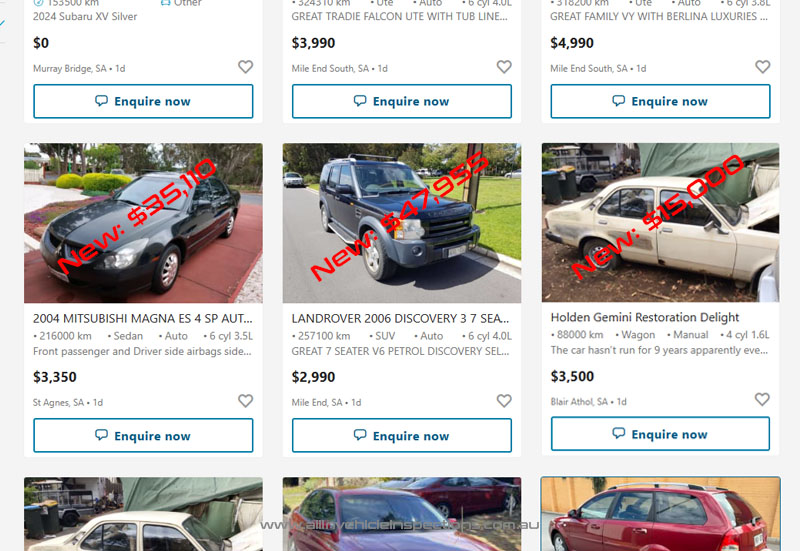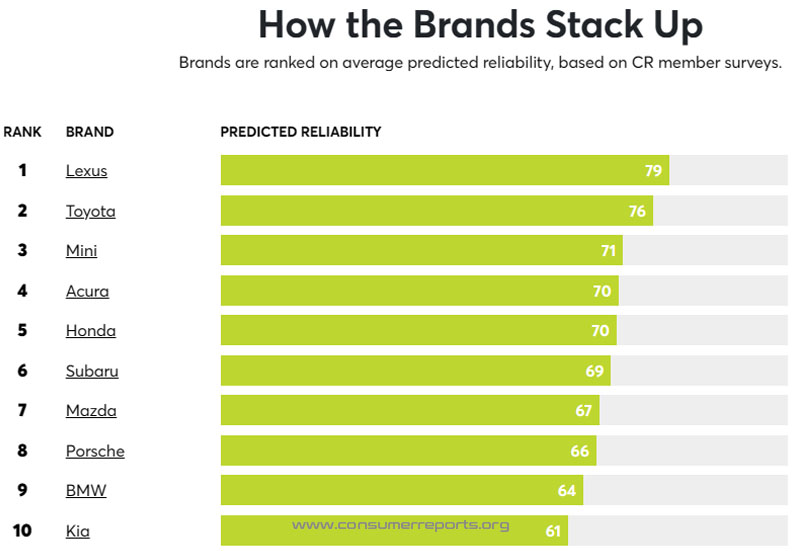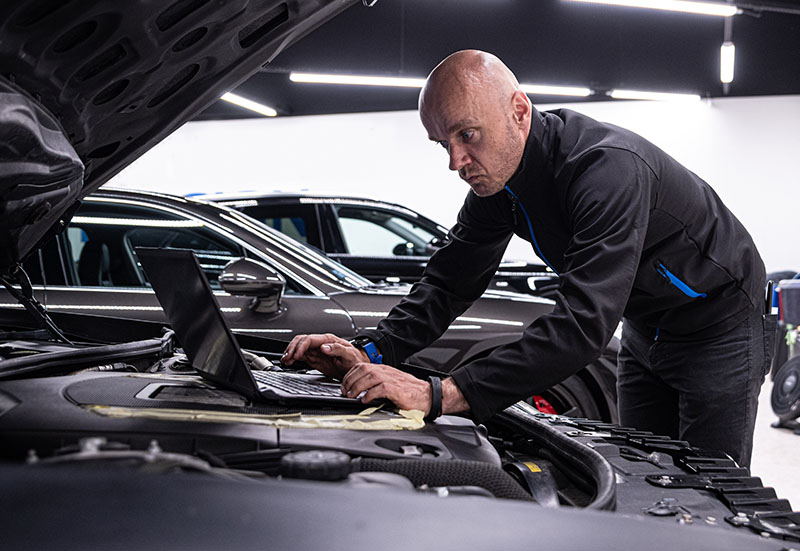Choosing Your Perfect Vehicle: Key Considerations Before You Buy
Posted by Mark Dibdin on 2nd Nov 2023
Choosing the perfect vehicle is a significant decision that can greatly impact your daily life or business. Making the right choice can bring immense satisfaction, but overlooking essential aspects can lead to serious buyer's remorse. Whether you're a first-time buyer or looking to replace your current vehicle, it's essential to make an informed choice that suits your needs, preferences, and budget. Before you even set foot in a dealership or start browsing online listings, consider these important factors to guide your decision-making process.
10. Define Your Needs and Lifestyle
If you want to avoid buyers remorse this is the most important step, skip this and you are leaving your chance of finding a suitable vehicle to luck. Before you begin shopping for a vehicle, take a step back and think about your specific needs and lifestyle. Depending upon what you need, you may find that one vehicle won't cover all areas, or you may find that the vehicle that you thought was a "bad" choice was more suitable than the "good" choice.

Consider the following questions:
- What and how are you intending to use your vehicle?
- How many passengers do you need to accommodate regularly?
- What type of driving will you do most often (e.g., city commuting, long road trips, off-road adventures)?
- Do you have any special requirements, such as towing capacity, cargo space, or off-road capabilities?
- What are your budget constraints, including upfront costs and ongoing expenses (e.g., fuel, maintenance, insurance)?
Notice we haven't mentioned colour or make of the vehicle, it's important to keep an open mind. This is not an exhaustive list, but by answering these questions, you can narrow down your options and focus on vehicles that align with your lifestyle and budget. Buyers remorse includes paying more for a vehicle too, and if you don't know what you're looking for it's easy to be "over-sold". So let's look at the second most important item on a buying list, budget.
9. Determine Your Budget
Establishing a budget is a critical step in purchasing a vehicle, and it's important to understand one thing: as a general rule, 99% of vehicles depreciate in value. If you buy a vehicle today, five years from now, it may only be worth 10% of its original price. If you get a loan, it's possible that at any given time, the loan will be worth more than the vehicle, especially if you buy new.

You know that you will have to pay for the car itself, but are there any hidden costs that you haven't thought about?
- Is there a tax or levy to pay when transferring ownership?
- Does it need to be registered or pay for tax now or soon?
- Do you need any accessories that need purchasing?
- Are you buying local, or will the vehicle need to be transported to your location? And most importantly,
- Get the vehicle inspected for defects before buying with a Pre-Purchase Inspection.
It's essential to factor in not only the initial cost but also recurring expenses like insurance, fuel, maintenance, and potential financing charges. Evaluate your monthly income, existing financial commitments, and additional vehicle-associated costs, to make sure that you can easily afford to run the vehicle. Whether you buy new or used, make sure that you have a buffer in your finances to allow for vehicle servicing and repairs. Make sure that you know what is included if it comes with free servicing, as most manufacturers will charge you for components that wear out through use or need to be repaired because of "accidental" damage.
Remember, most cars serve a singular purpose: to transport you from point A to B and back. Opting for pricier options may not significantly enhance this basic experience but could divert funds from other necessities. If you're considering vehicle financing, it's prudent to invest in fully comprehensive insurance. In the event of an accident, regardless of fault, if the vehicle is written-off the lender will still expect repayment, so ensuring you're protected even if the vehicle is no longer in your possession, is a crucial action.
8. New vs. Used
Decide whether you want a new or used vehicle. Each option has its advantages and drawbacks:
New vehicles offer the latest technology, warranties, and the satisfaction of owning something brand new. However, they typically come with a higher purchase price and more significant depreciation in the first few years.
Used vehicles are often more affordable and have already undergone their most substantial depreciation. However, they may have higher maintenance costs and a shorter remaining lifespan.

Reflecting on my personal experiences with purchasing vehicles, it's evident that opting for used cars has proven to be a financially savvy choice for me. By avoiding the immediate depreciation, or "forecourt tax," associated with new cars, I've been able to allocate my savings towards enriching experiences and life's other joys. My journey highlights that, with prudent selection and maintenance, older vehicles can be reliable and cost-effective, allowing for financial freedom and memorable experiences without being burdened by a car loan.
Whether you buy a new or used vehicle, read on to see about our pre-purchase vehicle inspections. New vehicles can be damaged in transit or at the dealer and a repaired vehicle will be worth less in the future. Avoid getting a vehicle like this by purchasing an advanced inspection which includes a full electronic paint and body repair diagnostic report.
7. Fuel Efficiency and Environmental Impact
Fuel efficiency and eco-friendliness are crucial in today's vehicle choices. Evaluate a vehicle's fuel consumption or kilowatts rating to meet your efficiency goals. While larger vehicles often consume more fuel, there are exceptions; a 4x4 may offer similar functionality to a wagon but could use double the fuel per 100km.

Weighing the environmental impact might steer you towards low-emission alternatives like electric or hybrid vehicles. Though these cutting-edge options often come with a higher price tag, it's important to consider both their advantages and drawbacks. Some electric vehicles may cost twice as much as their conventional counterparts, offer a limited driving range before recharging, and experience faster depreciation as battery prices decrease.
On the flip side, eco-friendly vehicles bring numerous benefits. Charging at home can be more cost-effective, and utilizing a home solar system could potentially reduce charging costs to zero. These vehicles often provide a smoother and quieter ride, devoid of vibrations typically associated with traditional engines. Moreover, if your commutes are generally short and localized, you can virtually eliminate trips to the service station, adding convenience to your routine. Embracing these advantages can contribute to a more economical and environmentally conscious driving experience.
6. Safety Features
Safety should be a top priority when choosing a vehicle. Look for models that have high safety ratings and come equipped with advanced safety features. A good place to start with checking out a car's safety rating is with ANCAP, Australasian New Car Assessment Program, which will give you a guide to the safety for the driver, passengers and other road users.

Just because a vehicle has been tested with ANCAP, it doesn't mean the vehicle you are looking at has the same safety features fitted as standard. Ask the seller what features are fitting on the vehicle, such as:
- Antilock brakes (ABS)
- Airbags (front, side, curtain)
- Electronic stability control (ESC)
- Advanced driver-assistance systems (ADAS) like adaptive cruise control
- Lane-keeping assist
- Automatic emergency braking
- Child Safety such as child seat anchor points or isofix compatibility
Some insurance companies will greatly reduce your premiums if a vehicle is fitted with these, so the extra cost of purchasing a vehicle with them may repay you in the future.
5. Resale Value
Think about the long-term value of your vehicle. Some brands and models tend to retain their value better than others, which can give you more money to spend when it's time to sell or trade in your vehicle. Research resale values and depreciation rates for the vehicles you're considering.

There are a few vehicles out there where you might find that the resale value is equal to, or more than, the original selling price but it would be fair to say they are fair and few between. You might find that a low mileage, good condition Land Cruiser may have held its value over time, assuming that it hasn't spent too much time outside of the city. But a Land Rover Discover may lose half its value in a year or two, not a good outcome for such a high price tag.
If you are buying the car to keep until it dies, resale value is of little concern as 20 years later most vehicles will be worth very little. However, if you buy vehicles with an intent to exchange them every three years, then a vehicle that loses its value rapidly will not be a good investment. Use the used car sites, such as Gumtree that are around to compare new and used prices to give you an idea how much each vehicle depreciates.
4. Reliability and Maintenance Costs
It goes without saying that not all vehicles are created equally, and of course you'd probably guess that not all vehicles perform the same in different environments. Here in Australia, we have no way of knowing the reliability of each manufacturer as there is no mandatory reporting on defects, so you have to rely on hearsay and gossip rather than cold hard facts.

Fear not, other countries do collect data from consumers about their vehicle defects and regular reports can be found on the reliability of each brand. A good example of this is Consumer Reports in the good ol' U.S. of A. Most manufacturers are selling worldwide today and that means that we can get a good idea of the reliability of vehicles that are sold here. You can even look up their old reports from 10 years ago if you are looking for a used car.
Checking reliability ratings and reviews for the make and model you're interested in can also be done on other vehicle review sites such as drive.com.au. Vehicles with a reputation for reliability can save you money on maintenance and repairs over time. Also, factor in the cost of long-term maintenance, including routine minor/major services and potential repairs, into your budget.
3. Research and Compare
Put together all of the information you have got so far and it's time to do some homework. Research the vehicles you're interested in, read reviews from reputable sources, compare prices and features, and seek recommendations from friends and family. If you can, go visit a few local used or new car dealers to get an idea of what the vehicle is like in real life.

If you think that you have found the vehicle of your dreams, don't commit yet. If you are able to look at the vehicle firsthand, it's time to act like a small child when their dad brings home a new car.... play with every switch, setting, door, storage cover etc. to make sure it all works. If you are mechanically minded, have a look under the bonnet, check for leaks and damage including loose and worn components. If you're not sure what you're looking at, All In Vehicle Inspections have expert, qualified inspectors that will assess the car for you.
Remember that in most cases this will not be the only car that was made, there are other options, and you should go with a view that you can walk away not that you are going to buy it.
2. Test Drive
Finally, you can start looking for a vehicle that fits your needs. Never underestimate the significance of a test drive. It provides you with the opportunity to assess how the vehicle handles, performs, and behaves in real-world conditions. Be attentive to key factors such as comfort, visibility, noise levels, and the ease of using essential controls. It's why a test drive is part of all of our inspections.

However, exercise caution when test driving a new vehicle, as the novelty can make it seem superior to the vehicle you're replacing. The allure of searching for a new vehicle can be captivating and exhilarating, making it easy to become swept up in the moment and make a spontaneous decision. Don't believe me, ask anyone in vehicle sales about the importance of this moment in their selling process.
On a test drive listen out for anything that sounds unusual for a vehicle such as vibrations, noises, steering pulling to one side, engine not accelerating smoothly or brakes pulling to one side. Try to take the vehicle on a road test as long as you can afford and the seller will let you, say 30-60 minutes. If it's a private sale they want to come with you, but a dealer may not. Whatever the case, drive where you want to go, on the roads you choose, and at the speeds you want to (within the speed limit of course) as they may be trying to get you on a route that masks a potential problem with the vehicle.
If you want an honest opinion, a pre-purchase inspection from All In Vehicle Inspections includes a test drive for these very reasons and being fully insured, private sellers are much more likely to allow an extensive road test.
1. Get a Pre-Purchase Vehicle Inspection
Before you rush out and put down your hard-earned cash on the "perfect" vehicle, there's one critical step that can't be emphasized enough—a pre-purchase vehicle inspection. This final checkpoint in your vehicle-buying journey can make all the difference between a successful purchase and a costly mistake.
Positive Effects of a Pre-Purchase Inspection:
1. Peace of Mind: A thorough inspection by a qualified technician can uncover potential issues that may not be visible during a test drive, giving you confidence in your purchase.
2. Negotiation Leverage: If the inspection reveals any issues, you can use this information to negotiate a better price or request necessary repairs before finalising the deal.
3. Safety Assurance: Knowing that the vehicle has been inspected for safety concerns can help ensure the well-being of you and your passengers.

Negative Effects of Skipping a Pre-Purchase Inspection:
1. Hidden Problems: Without an inspection, you risk purchasing a vehicle with hidden mechanical, electrical, or safety issues that may lead to expensive repairs down the road.
2. Reduced Resale Value: Undiscovered issues can decrease the resale value of your vehicle when you decide to sell or trade it in.
3. Safety Risk: Ignoring a pre-purchase inspection can potentially put your safety at risk if there are hidden safety-related problems.
To safeguard your investment and make an informed decision, we highly recommend scheduling a pre-purchase vehicle inspection with a trusted professional.

How Our Pre-Purchase Vehicle Inspections Work
Seeking a trustworthy pre-purchase vehicle inspection? Look no further than All In Vehicle Inspections. We specialize in evaluating all vehicle types, offering a thorough assessment from engine performance to aesthetics. Here’s our efficient 4-step process:
1. Find Your Vehicle: Once you've identified a suitable vehicle, pause before purchasing.
2. Book an Inspection: Schedule a tailored inspection with us, ranging from basic mechanical checks to advanced all-inclusive assessments. Book online at www.aivi.au or call us.
3. Swift and Thorough Inspection: Our inspectors conduct a detailed evaluation at a convenient location for the seller, using digital checklists and documenting findings with photos. Upon completion, a comprehensive report is sent directly to your email for immediate access.
4. Make an Informed Decision: Armed with our report, confidently proceed with the purchase, negotiate a better price, or explore other options.
Our reports empower you to make wise choices, helping you discern a true gem from a potential lemon. Depending on the report you have 4 options; buy the car, haggle with the price, haggle to get items repaired or walk away from the deal entirely. Remember, there's always another vehicle waiting for you if this one is faulty or too costly.

Conclusion
Congratulations, if you got this far in the buyer's guide then you should be well on your way to purchasing a vehicle that suits your needs a side order of buyer's remorse. In reality, choosing the perfect vehicle involves a series of careful considerations and steps, from defining your needs and budget to test driving and inspecting the vehicle thoroughly. By following these guidelines and prioritizing a pre-purchase inspection, you can increase the likelihood of enjoying a trouble-free and satisfying ownership experience with your chosen vehicle. Remember, informed decisions lead to greater peace of mind on the road ahead.

